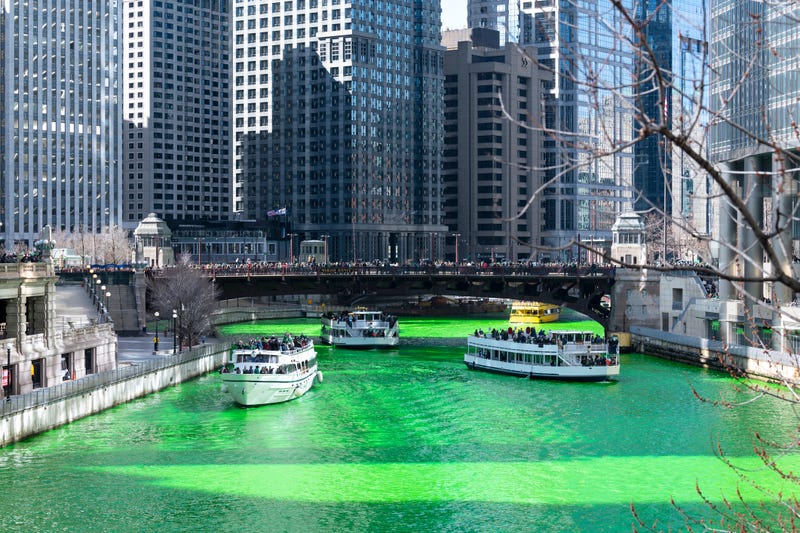
Thousands watched while the Chicago River was dyed green Saturday, an annual St. Patrick’s weekend tradition in what LawnStarter data shows is the second-most Irish city in the U.S. Chicago is also ranked by WalletHub as one of the top five cities for St. Pat’s celebrations.
Although the holiday honors the patron saint of Ireland, celebrations of St. Patrick’s Day became more popular and secular as Irish immigrants moved to the U.S. While many of the “most Irish” cities were also ranked as prime places to celebrate the holiday, some didn’t make the list.
Let’s see how they compare.
To determine its list of “most Irish” cities, Lawn Starter gathered publicly available data about Irish community, food, drink, cultural enrichment and organizations from 200 of the largest cities in the nation.
Here’s the top 10 list of “most Irish” cities:
1. New York, N.Y.
2. Chicago, Ill.
3. Boston, Mass.
4. Philadelphia, Pa.
5. San Francisco, Calif.
6. Pittsburgh, Pa.
7. Denver, Colo.
8. San Diego, Calif.
9. Seattle, Wash.
10. Omaha, Neb.
To determine the places with the best St. Patrick’s Day celebrations, WalletHub compared 200 of the most populated U.S. cities based on St. Patrick’s Day Traditions, costs, safety and accessibility, and St. Patrick’s Day Weather. Then, those dimensions were evaluated using “15 relevant metrics.”
Here’s the top 10 list of cities with the best St. Patrick’s Day celebrations:
1. Boston, Mass.
2. Philadelphia, Pa.
3. Chicago, Ill.
4. Pittsburgh, Pa.
5. New York, N.Y.
6. Reno, Nev.
7. Santa Rosa, Calif.
8. Naperville, Ill.
9. Buffalo, N.Y.
10. Boise, Idaho
Overall, more than 31 million people in the U.S. claim Irish ancestry and Americans are expected to spend nearly $7 billion celebrating the holiday this year. Festivities include pageants, pub crawls and parades.
Since St. Patrick’s Day is often associated with drinking alcohol, experts recommend that people who celebrate drink responsibly.
“Make plans for a designated driver before everyone starts drinking. Do not wait until alcohol consumption has begun and rely on who is the ‘least drunk,’ or who has had the fewest drinks,” said Melissa A. Lewis, of the School of Public Health at University of North Texas Health Science Center.


